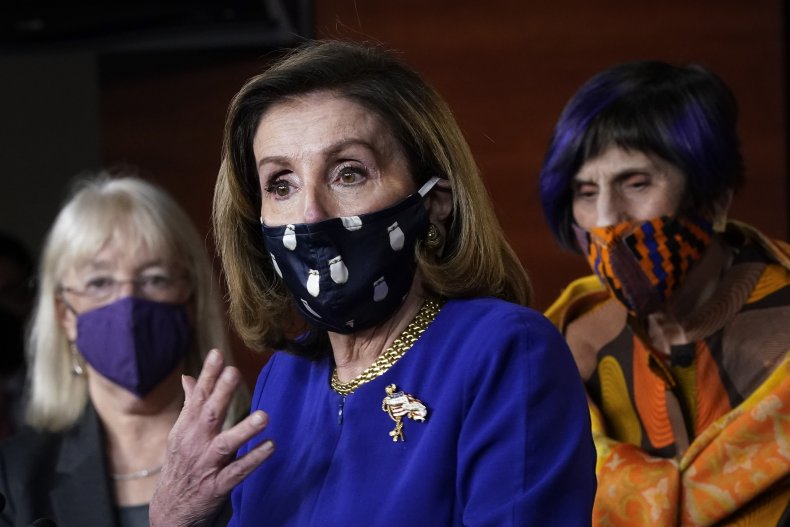GOP, Businesses Groups Say Democrats Equal Pay Bill Will Lead to 'Frivolous' Litigation
Republicans and business groups oppose legislation from House Democrats that aims to close the wage gap between men and women.
H.R. 7, or the Paycheck Fairness Act, would make it easier to sue employers over pay discrimination, curb the ability of companies to retaliate and enhance enforcement of existing laws, and ban employers from prohibiting employees from discussing their salaries.
Republican lawmakers believe the bill is unnecessary, burdensome to employers and most beneficial to trial lawyers looking to sue companies.
GOP Rep. Michael Burgess of Texas said that "wage discrimination has no place in any society," but he does not think the Democrats' bill is the best way to correct this wrong.
"The path Congress must take is to not increase opportunities for trial lawyers, but to continue its focus on strong economic policy that actually expands opportunities for all Americans," he said.
The measure is also widely opposed by business groups, including the National Restaurant Association and the National Retail Federation and the U.S. Chamber of Commerce. In a letter to House members, the Chamber wrote that the bill would "significantly erode employer defenses for legitimate pay disparities," among other things.
"Increasing the opportunity for frivolous litigation would only further serve to undermine our nation's civil rights laws," the Chamber wrote.
According to The Hill, the Retail Industry Leaders Association (RILA), which represents major retailers like Target, Walgreens and Home Depot, on Wednesday wrote a letter to Pelosi and McCarthy with their opposition to the bill, citing the same concerns.
"The Paycheck Fairness Act is unequivocally the wrong approach to address the gender wage gap," wrote Evan Armstrong, RILA vice president of workforce policy.
Both the Chamber of Commerce and RILA support the WAGE Equality Act introduced by GOP Rep. Elise Stefanik of New York that would prohibit employers from asking a candidate about their pay history, make it unlawful for employers to prohibit employees from discussing their wages and provide businesses that undergo pay audits to identify gender pay disparities.

For more reporting from the Associated Press, see below.
The Paycheck Fairness Act, which is supported by President Joe Biden's administration, is the latest salvo in a long-running debate about equality of pay and the government's role in ensuring it. Despite their past efforts, including the Lilly Ledbetter Fair Pay Act of 2009 signed into law by President Barack Obama, Democrats say there is still more that needs to be done to close a gap in pay, where white women make on average 82 cents to every dollar earned by white men.
"Sadly, equal pay is not yet a reality in America," said House Speaker Nancy Pelosi, D-Calif. "It's almost sinful."
Republicans say laws already on the books outlaw pay discrimination.
Democrats counter, however, that existing protections have proved insufficient, including those offered under the Equal Pay Act of 1963, which requires that men and women in the same workplace be given equal pay for equal work.
The U.S. is hardly alone in having such disparities. But the gap is larger here than in many other countries, with only Mexico, Finland, Israel, Japan and Korea having larger differentials, according to a study by the Organisation for Economic Co-operation and Development, an international group based in Paris.
Democrats also note that the disparity is particularly acute for women of color, with Black women making about 63 cents for every dollar earned by a white male counterpart and Hispanic women making even less.
GOP Rep. Virginia Foxx, North Carolina, said many women choose jobs that offer more flexibility to balance home and work.
"Democrats aren't giving the full story when they talk about pay differences," Foxx said. "Women are making career choices that are best for themselves and their families."

